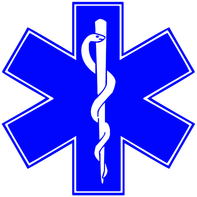Have a safe and enjoyable winter season!
Never venture out on unknown or unsafe ice conditions. If you witness a person or pet falling through the ice call 911 immediately. Remember, don't panic, call for help, and don't put yourself in danger. You can't help if you're a victim too. If you fall through the ice, understand the rule of 1-10-1 which states that it takes about ONE minute to get your breathing under control during the cold shock response, you will want to gasp and hyperventilate but stay calm. The next TEN minutes is your window of opportunity to get out of the water before extremities like hands, arms, and legs become incapacitated. Don't try to climb out, instead lay your upper body across the ice and kick until you're out of the water and flat on the ice. Spreading out your weight will help prevent the ice from breaking further and getting out of the water mitigates the risk of drowning. If you can't get out of the water hypothermia and eventually unconsciousness will set in during the next ONE hour. Hypothermia is always a concern under circumstances of cold exposure, in or out of the water, so call 911 for help as soon as possible.
Hypothermia is a real concern for those exposed to cold. Signs and symptoms of hypothermia include muscle contractions, uncontrollable shivering, reduced muscle control, confusion, and slurred speech. In the event of exposure or suspected hypothermia, get the person to a warm area and remove any wet clothing. Gradually rewarm them by applying a gentle source of heat. Use loose, dry layers of blankets, clothing, towels, or sheets. Warm beverages can help increase the body temperature, but never give alcoholic beverages which lower the body’s temperature. After body temperature has increased, keep the person dry and wrapped in a warm blanket including the head and neck. Never hesitate to call 911 as soon as possible to get help coming. We have the resources to get to you regardless of your location.
Hypothermia is a real concern for those exposed to cold. Signs and symptoms of hypothermia include muscle contractions, uncontrollable shivering, reduced muscle control, confusion, and slurred speech. In the event of exposure or suspected hypothermia, get the person to a warm area and remove any wet clothing. Gradually rewarm them by applying a gentle source of heat. Use loose, dry layers of blankets, clothing, towels, or sheets. Warm beverages can help increase the body temperature, but never give alcoholic beverages which lower the body’s temperature. After body temperature has increased, keep the person dry and wrapped in a warm blanket including the head and neck. Never hesitate to call 911 as soon as possible to get help coming. We have the resources to get to you regardless of your location.






